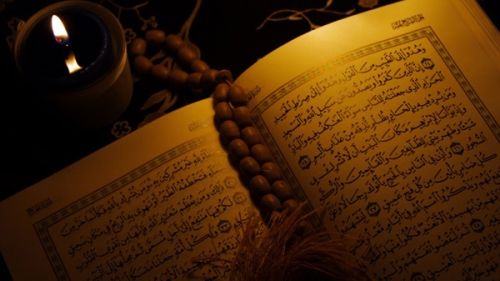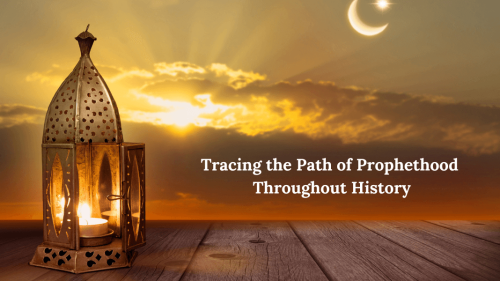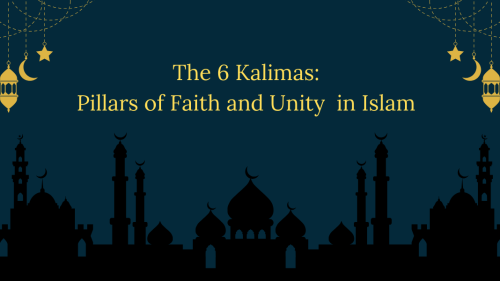How did the US Founding Fathers view Islam?

Library of Congress Papers Show Tolerance and acceptance for Muslim Faith
With more than 55 million items, the Library's Manuscript Division contains the papers of 23 presidents, from George Washington to Calvin Coolidge. In this article, Manuscript Division Chief James Hutson draws upon the papers of Washington, Thomas Jefferson and other primary documents to discuss the relationship of Islam to the new nation.
MANY MUSLIMS feel unwelcome in the United States in the aftermath of September 11, according to newspaper reports. Anecdotal evidence suggests that substantial numbers of Americans view their Muslim neighbors as an alien presence outside the limits of American life and history. While other minorities-African Americans, Hispanics and Native Americans-were living within the boundaries of the present United States from the earliest days of the nation, Muslims are perceived to have had no part in the American experience.
Readers may be surprised to learn that there may have been hundreds, perhaps thousands, of Muslims in the United States in 1776-imported as slaves from areas of Africa where Islam flourished. Although there is no evidence that the Founders were aware of the religious convictions of their bondsmen, it is clear that the Founding Fathers thought about the relationship of Islam to the new nation and were prepared to make a place for it in the republic.
In his seminal Letter on Toleration (1689), John Locke insisted that Muslims and all others who believed in God be tolerated in England. Campaigning for religious freedom in Virginia, Jefferson followed Locke, his idol, in demanding recognition of the religious rights of the "Mahamdan," the Jew and the "pagan." Supporting Jefferson was his old ally, Richard Henry Lee, who had made a motion in Congress on June 7, 1776, that the American colonies declare independence. "True freedom," Lee asserted, "embraces the Mahomitan and the Gentoo (Hindu) as well as the Christian religion."
In his autobiography, Jefferson recounted with satisfaction that in the struggle to pass his landmark Bill for Establishing Religious Freedom (1786), the Virginia legislature "rejected by a great majority" an effort to limit the bill's scope "in proof that they meant to comprehend, within the mantle of its protection, the Jew and the Gentile, the Christian and Mahometan." George Washington suggested a way for Muslims to "obtain proper relief" from a proposed Virginia bill, laying taxes to support Christian worship. On another occasion, the first president declared that he would welcome "Mohometans" to Mount Vernon if they were "good workmen" (see page 96). Officials in Massachusetts were equally insistent that their influential Constitution of 1780 afforded "the most ample liberty of conscience ... to Deists, Mahometans, Jews and Christians," a point that Chief Justice Theophilus Parsons resoundingly affirmed in 1810.
Toward Islam itself the Founding generation held differing views. An evangelical Baptist spokesman denounced "Mahomet" as a "hateful" figure who, unlike the meek and gentle Jesus, spread his religion at the point of a sword. A Presbyterian preacher in rural South Carolina dusted off Grotius' 17th century reproach that the "religion of Mahomet originated in arms, breathes nothing but arms, is propagated by arms." Other, more influential observers had a different view of Muslims. In 1783, the president of Yale College, Ezra Stiles, cited a study showing that "Mohammadan" morals were "far superior to the Christian." Another New Englander believed that the "moral principles that were inculcated by their teachers had a happy tendency to render them good members of society." The reference here, as other commentators made clear, was to Islam's belief, which it shared with Christianity, in a "future state of rewards and punishments," a system of celestial carrots and sticks which the Founding generation considered necessary to guarantee good social conduct.
"A Mahometan," wrote a Boston newspaper columnist, "is excited to the practice of good morals in hopes that after the resurrection he shall enjoy the beautiful girls of paradise to all eternity; he is afraid to commit murder, adultery and theft, lest he should be cast into hell, where he must drink scalding water and the scum of the damned." Benjamin Rush, the Pennsylvania signer of the Declaration of Independence and friend of Adams and Jefferson, applauded this feature of Islam, asserting that he had "rather see the opinions of Confucius or Mohammed inculcated upon our youth than see them grow up wholly devoid of a system of religious principles."
That ordinary citizens shared these positive views is demonstrated by a petition of a group of citizens of Chesterfield County, Va., to the state assembly, Nov. 14, 1785: "Let Jews, Mehometans and Christians of every denomination enjoy religious liberty...thrust them not out now by establishing the Christian religion lest thereby we become our own enemys and weaken this infant state. It is mens labour in our Manufactories, their services by sea and land that aggrandize our Country and not their creeds. Chain your citizens to the state by their Interest. Let Jews, Mehometans, and Christians of every denomination find their advantage in living under your laws."
The Founders of this nation explicitly included Islam in their vision of the future of the republic. Freedom of religion, as they conceived it, encompassed it. Adherents of the faith were, with some exceptions, regarded as men and women who would make law-abiding, productive citizens. Far from fearing Islam, the Founders would have incorporated it into the fabric of American life.
James H. Hutson is chief of the Manuscript Division and the author of many books, including "Religion and the Founding of the American Republic," 1998
The Library of Congress - Information Bulletin - May 2002
Related Suggestions
There are many beautiful places there that God has made that I should love to see, but the
people who live there seem to me to be hateful people and with the laws where foreigners
could in theory be thrown in jail with no habeas corpus, or apparently have to run
gauntlets of protestors if i want to visit a local mosque, as a foreign muslim i think i should
be extra careful and not venture out of the hotel much lest I should be beyond the
protection of my employer, as we muslims cannot depend on the hospitality of the locals.
Freedom of religion is not an western concept but a universal concept and even many muslim majority nations were also founded under freedom of religion.
A Chronological Observation
By Fareed H. Numan (December 1992)
(Edited by Ishaq Zahid for islam101.com)
http://www.islam101.com/history/muslim_us_hist.html
Unquestionably, Muslims have made an impact on the evolution of American society. Historically Muslims have made major contribution, e.g. humanities, the sciences, and art. They explored North America 300 years before the so-called "discovery" of the New World by Christopher Columbus. They used the Mississippi river as their access route to and from the continent's interior. Here are a few glimpses of Muslim life in American History:
1178 A Chinese document know as the Sung Document records the voyage of Muslim sailors to a land know as Mu-Lan-Pi (America). Mention of this document is contained in the publication, the Khotan Amiers, 1933.
1310 Abu Bakari (Abu Bakar), a Muslim king of the Malian Empire, spearheads a series of sea voyages to the New World.
1312 African Muslims (Mandinga) arrive in the Gulf o Mexico forexploration of the American interior using the Mississippi River as their access route. These Muslim explorers were from Mali and other parts of West Africa.
1513 Pri Ries completes his first world map, including the American, after research maps from all over the world. The practicality and artistry of his map surpassed any from his time or before.
1530 African slaves arrive in America. During the slave trade, more than 10 million Africans were uprooted from their homes and brought to American shores. Many of these slaves were from the Fulas, Fula Jallon, Fula Toro, and Massiona as well as other areas of West Africa. These areas were governed from their capital, "Timbuctu." These slaves were sent to Mexico, Cuba, and South America. More than 30 percent of these 10 million slaves were Muslim. They became the backbone of the American economy.

















